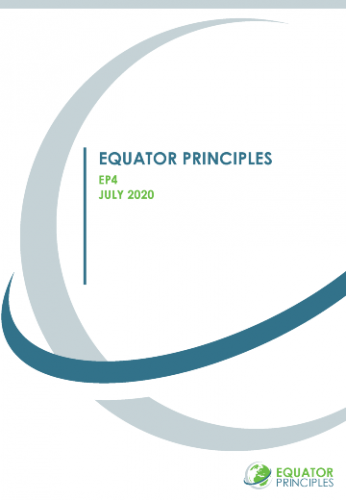This website uses cookies so that we can provide you with the best user experience possible. Cookie information is stored in your browser and performs functions such as recognising you when you return to our website and helping our team to understand which sections of the website you find most interesting and useful.
Overview of the 10 Equator Principles
Principle 1
Review & Categorisation
Principle 2
E&S Assessment
Principle 3
Applicable E&S Standards
Principle 4
E&S Management System & EP Action Plan
Principle 5
Stakeholder Engagement
Principle 6
Grievance Mechanism
Principle 7
Independent Review
Principle 8
Covenants
Principle 9
Independent Monitoring & Reporting
Principle 10
Reporting & Transparency

